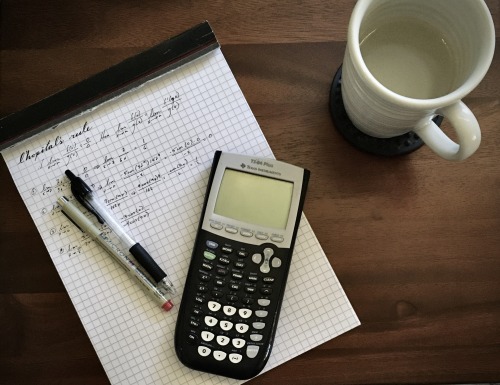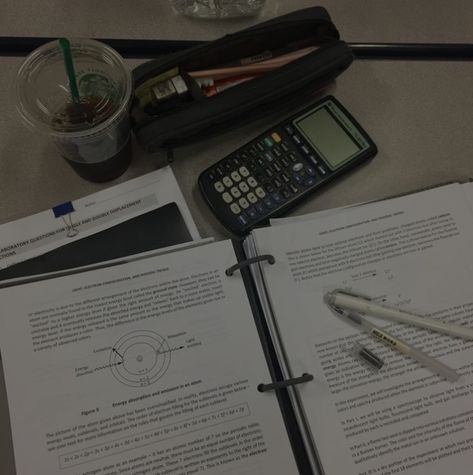1,000 Years Of Scientific Texts From The Islamic World Are Now Online

1,000 Years of Scientific Texts From The Islamic World Are Now Online
Between the 9th and 19th centuries, Arabic-speaking scholars translated Greek, Latin and even Sanskrit texts on topics such as medicine, mathematics and astronomy, fostering a vibrant scientific culture within the Islamic world.
The library, a joint project of the British Library and the Qatar Foundation, offers free access to 25,000 pages of medieval Islamic manuscripts. Among some of the most significant texts:
The Book of Knowledge of Ingenious Mechanical Devices (1206 A.D.), which was inspired by an earlier, 9th-century translation of Archimedes’ writings on water clocks. Devices such as the “Elephant Clock” were the most accurate time-keeping pieces before the first pendulum clocks were built in the 17th century by the Dutch scientist Christiaan Huygens.
This is one of the only three recorded copies of an influential treatise on the construction and use of astrolabes by Abū al-Rayḥān Muḥammad ibn Aḥmad al-Bīrūnī (973-1048), containing 122 diagrams.
See more manuscripts at the Qatar Digital Library.
[via io9]
More Posts from Astrorelations and Others
Tesseract



What is a Wormhole?
Wormholes were first theorized in 1916, though that wasn’t what they were called at the time. While reviewing another physicist’s solution to the equations in Albert Einstein’s theory of general relativity, Austrian physicist Ludwig Flamm realized another solution was possible. He described a “white hole,” a theoretical time reversal of a black hole. Entrances to both black and white holes could be connected by a space-time conduit.

In 1935, Einstein and physicist Nathan Rosen used the theory of general relativity to elaborate on the idea, proposing the existence of “bridges” through space-time. These bridges connect two different points in space-time, theoretically creating a shortcut that could reduce travel time and distance. The shortcuts came to be called Einstein-Rosen bridges, or wormholes.

Certain solutions of general relativity allow for the existence of wormholes where the mouth of each is a black hole. However, a naturally occurring black hole, formed by the collapse of a dying star, does not by itself create a wormhole.
Wormholes are consistent with the general theory of relativity, but whether wormholes actually exist remains to be seen.

A wormhole could connect extremely long distances such as a billion light years or more, short distances such as a few meters, different universes, or different points in time
For a simplified notion of a wormhole, space can be visualized as a two-dimensional (2D) surface. In this case, a wormhole would appear as a hole in that surface, lead into a 3D tube (the inside surface of a cylinder), then re-emerge at another location on the 2D surface with a hole similar to the entrance. An actual wormhole would be analogous to this, but with the spatial dimensions raised by one. For example, instead of circular holes on a 2D plane, the entry and exit points could be visualized as spheres in 3D space.

Science fiction is filled with tales of traveling through wormholes. But the reality of such travel is more complicated, and not just because we’ve yet to spot one.

The first problem is size. Primordial wormholes are predicted to exist on microscopic levels, about 10–33 centimeters. However, as the universe expands, it is possible that some may have been stretched to larger sizes.
Another problem comes from stability. The predicted Einstein-Rosen wormholes would be useless for travel because they collapse quickly.

“You would need some very exotic type of matter in order to stabilize a wormhole,” said Hsu, “and it’s not clear whether such matter exists in the universe.”
But more recent research found that a wormhole containing “exotic” matter could stay open and unchanging for longer periods of time.

Exotic matter, which should not be confused with dark matter or antimatter, contains negative energy density and a large negative pressure. Such matter has only been seen in the behavior of certain vacuum states as part of quantum field theory.
If a wormhole contained sufficient exotic matter, whether naturally occurring or artificially added, it could theoretically be used as a method of sending information or travelers through space. Unfortunately, human journeys through the space tunnels may be challenging.

Wormholes may not only connect two separate regions within the universe, they could also connect two different universes. Similarly, some scientists have conjectured that if one mouth of a wormhole is moved in a specific manner, it could allow for time travel.

Although adding exotic matter to a wormhole might stabilize it to the point that human passengers could travel safely through it, there is still the possibility that the addition of “regular” matter would be sufficient to destabilize the portal.
Today’s technology is insufficient to enlarge or stabilize wormholes, even if they could be found. However, scientists continue to explore the concept as a method of space travel with the hope that technology will eventually be able to utilize them.
source
source
images: x, x, x, x, x, x, x, x, x
All of this for a lousy 2






This is the Maiden of Llullaillaco, an Incredibly Well-Preserved Child Sacrifice from the Incan Empire around 500 years ago.
The Maiden of Llullaillaco, sacrificed at around the age of 15, was discovered with the other “Children of Llullaillaco” which includes a 6 year old girl and a 7 year old boy.
These mummies are so well preserved due to their position within a tomb atop a mountain within the extremely dry Atacama Desert. They are so well preserved, that their internal organs are intact, individual hairs on the arms can be seen and even one of the heart’s still contains frozen blood.
The deaths of the three children occurred by drugging the children with alcohol and coca, then placing them in the tomb where they eventually died in their sleep. This appears to have been a very well prepared process, as hair samples dictated that the children had extremely rich diets leading up to their deaths. The tombs were also adorned with elaborate dress and trinkets.
The boy however, faced a different death that could’ve indicated struggle or a different burial process. The boy was very tightly bound, and had dislocated hips and ribs and it appears he died under stress as the clothing contains both vomit and blood. Suffocation is the likely cause of his death due to the way he was bound.




the mathematics students
crisp, grey mornings
the scratch of pencil on graph paper
working through complex problems just for the joy of it
baroque era piano music playing in the background
a love of patterns and puzzles
writing out your favorite proofs again and again
advanced math courses, sitting with the upperclassmen
the dusty green of an empty chalkboard
formulas scribbled on your hand in pen
going through a problem again and again until you understand it fully
carefully sketched graphs
short, bitten nails
ice cold water
hands marked with graphite
using math to take apart the world around you
doodling fractals on scratch paper
memorizing digits of pi just to show off to your friends
the moment of clarity when a problem fits together
hair clipped back out of your face
looking for fibonacci sequences in nature
watching a long and complicated equation simplify down to something short and compact

the most beautiful words in the english language
ineffable — indescribable, unspeakable
eudaemonia — the state of consummate happiness
sumptuous — extremely costly, luxurious, magnificent
nadir — the lowest point (of something abstract)
lassitude —tiredness, lack of energy
scintilla — a spark or a trace of something
aurora — the dawn
quintessential — perfectly typical or representative of a particular kind of person or thing
renaissance — revival
bodacious — remarkable, admirable
ebullience — the quality of excitement and enthusiasm
Energy formulas for imaginary matter
An imaginary matter is the mirror image of the corresponding real matter.
Energy formulas for real matters are still useful for imaginary matters if an observer is in the imaginary space. Then how are energy formulas for imaginary matters expressed if an observer who is in the real space could observe imaginary matters?
Suppose that observer A is in the real space and observer B is the mirror image of observer A in the imaginary space.
The space velocity vector and spacetime velocity vector measured by observer A are the opposite of those measured by observer B in the same way that the left and right sides of the mirror image are swapped, i.e., the space speed measured by observer A is constant at the maximum speed c and the spacetime speed measured by observer A is variable.
The relationship of these velocity vectors are shown in the figure below.

Assuming an imaginary matter moves at speed vi measured by observer B, the space speed vsB, time speed vtB and spacetime speed vstB measured by observer B are as follows:

On the other hand, the space speed vsA, time speed vtA and spacetime speed vstA measured by observer A are as follows:

The following equation holds true for time speed.

Hence, the following formula is obtained for the spacetime speed measured by observer A.

The spacetime speed measured by observer A is smaller as the space speed measured by observer B is larger.
Real matters cannot move at the speed of light at the cost of having mass, while imaginary matters also have mass but move at the speed of light.
Mass energy vector is in the time axis of the space-time complex plain and the time axis is common between the real space and imaginary space. Hence, the magnitude of mass energy vector is invariant for the spatial inversion. The imaginary space axis is at right angles to the real space axis in the space-space complex plain.

Therefore, the mass energy of imaginary matter measured by observer A is expressed as follows:

where “−i” is the operator that transfers from the real space to the imaginary space and m is mass.
The energy formulas for real matters in the range of v>c express those for imaginary matters, but the energy formulas of total energy and momentum energy are exchanged for each other. Therefore, the momentum energy Es and total energy Est of imaginary matter measured by observer A are expressed as follows:

For an imaginary matter at rest (vi = 0),

The space speed of imaginary matters is always zero because they have no momentum energy. Hence, an imaginary matter is equivalent to the real matter with (square root of 2) times the mass of the imaginary matter, moving at the speed of light.
The space velocity and time velocity of real matter, light and vacuum energy and those of imaginary matter converted into the real space are arranged below.
・Real matter : relative space speed and relative time speed ・Light : absolute space speed and no time velocity ・Vacuum energy : neither space velocity nor time velocity ・Imaginary matter : absolute space speed and absolute time speed
-
 nothingtoseemoveon liked this · 6 months ago
nothingtoseemoveon liked this · 6 months ago -
 erotomanes reblogged this · 1 year ago
erotomanes reblogged this · 1 year ago -
 occvltswim liked this · 1 year ago
occvltswim liked this · 1 year ago -
 theantichris liked this · 1 year ago
theantichris liked this · 1 year ago -
 amartianonmars liked this · 1 year ago
amartianonmars liked this · 1 year ago -
 talesofwhalesandflowerpots reblogged this · 1 year ago
talesofwhalesandflowerpots reblogged this · 1 year ago -
 talesofwhalesandflowerpots liked this · 1 year ago
talesofwhalesandflowerpots liked this · 1 year ago -
 madain-sari reblogged this · 1 year ago
madain-sari reblogged this · 1 year ago -
 fortheloveofscribe reblogged this · 1 year ago
fortheloveofscribe reblogged this · 1 year ago -
 iceulatte reblogged this · 1 year ago
iceulatte reblogged this · 1 year ago -
 sapphuchi liked this · 1 year ago
sapphuchi liked this · 1 year ago -
 bizarreshark liked this · 1 year ago
bizarreshark liked this · 1 year ago -
 cvltdelete liked this · 2 years ago
cvltdelete liked this · 2 years ago -
 mika3105 liked this · 2 years ago
mika3105 liked this · 2 years ago -
 feline17ff reblogged this · 2 years ago
feline17ff reblogged this · 2 years ago -
 to-younger-me-from-future-me reblogged this · 2 years ago
to-younger-me-from-future-me reblogged this · 2 years ago -
 thecursedsorcerer liked this · 2 years ago
thecursedsorcerer liked this · 2 years ago -
 moonincapricorn liked this · 2 years ago
moonincapricorn liked this · 2 years ago -
 1glenanthony liked this · 2 years ago
1glenanthony liked this · 2 years ago -
 smokemethandhailsatan liked this · 2 years ago
smokemethandhailsatan liked this · 2 years ago -
 hedownwithskeletor liked this · 2 years ago
hedownwithskeletor liked this · 2 years ago -
 kobithedragon reblogged this · 2 years ago
kobithedragon reblogged this · 2 years ago -
 kobithedragon liked this · 2 years ago
kobithedragon liked this · 2 years ago -
 queen-ofthe-misfits liked this · 3 years ago
queen-ofthe-misfits liked this · 3 years ago -
 burntsoup liked this · 3 years ago
burntsoup liked this · 3 years ago -
 misslanguages liked this · 3 years ago
misslanguages liked this · 3 years ago -
 paristani liked this · 3 years ago
paristani liked this · 3 years ago -
 phoenixavis liked this · 3 years ago
phoenixavis liked this · 3 years ago -
 sugartear liked this · 3 years ago
sugartear liked this · 3 years ago -
 dialogue-queered reblogged this · 3 years ago
dialogue-queered reblogged this · 3 years ago -
 justanawkwardinsomniac liked this · 3 years ago
justanawkwardinsomniac liked this · 3 years ago -
 queersolitude liked this · 3 years ago
queersolitude liked this · 3 years ago -
 langstud reblogged this · 3 years ago
langstud reblogged this · 3 years ago -
 jjacobmarion reblogged this · 3 years ago
jjacobmarion reblogged this · 3 years ago -
 jjacobmarion liked this · 3 years ago
jjacobmarion liked this · 3 years ago -
 yutke reblogged this · 3 years ago
yutke reblogged this · 3 years ago -
 wyrmwander reblogged this · 3 years ago
wyrmwander reblogged this · 3 years ago -
 ismatscaff reblogged this · 3 years ago
ismatscaff reblogged this · 3 years ago
